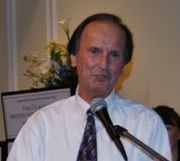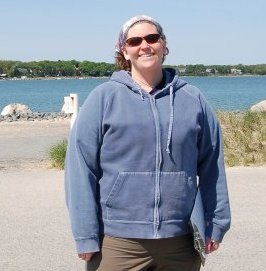 Master of Ceremonies and Exhibit Hall Coordinator
Master of Ceremonies and Exhibit Hall Coordinator
Sara P. Grady, Ph.D. is the South Shore Regional Coordinator for the Massachusetts Bays National Estuary Program and Watershed Ecologist at the North and South Rivers Watershed Association in Norwell, MA. She received her Bachelor of Science in Aquatic Biology from Brown
Session 1: Fundraising for Water (8:45 a.m. to 9:30 a.m.)
Whether you are a small nonprofit or are working to become one, one of the keys to success in building capacity is the ability to raise funds for your organization or for projects in your watersheds. This session will explore different kinds of fundraising and resources available to help us fundraise for clean, healthy water systems.
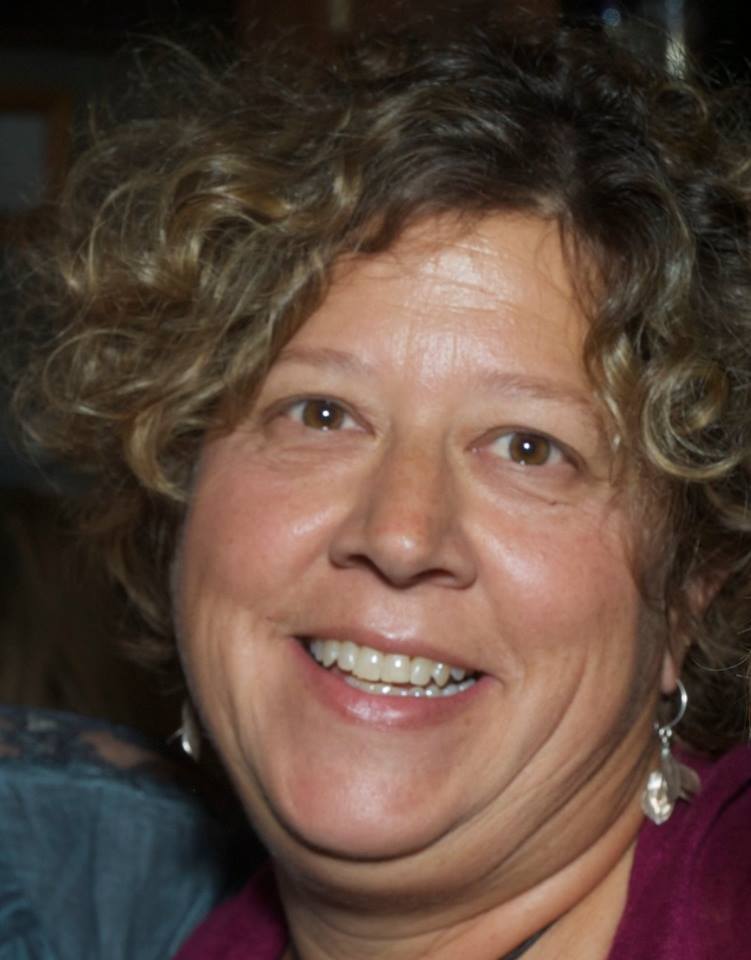
Moderator:
Samantha Woods has been the Executive Director of the North and South Rivers Watershed Association for over 12 years and has experience in grant writing, event and major donor fundraising.
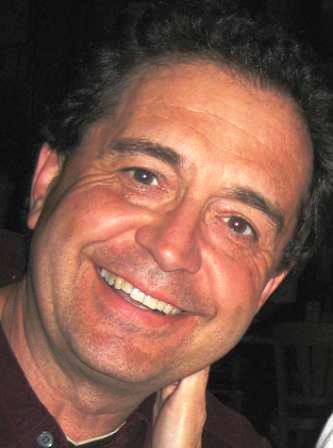
Panelists:
Bill Stanton is a former Executive Director for the North and South Rivers Watershed Association. He also was a professional fundraiser for The Trustees of Reservation, the Boston Natural Areas Network, and numerous political campaigns. Mr. Stanton will provide insight on how to run a major donor campaign.
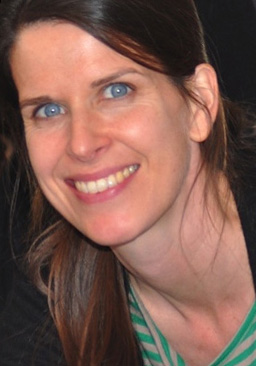 Sarah Kelley is Senior Program Officer at the Island Foundation, a family foundation based in Marion, MA that funds primarily in Southeastern Massachusetts, as well as in Rhode Island and Maine. Before coming to the Foundation in 2009, she served for five years as Executive Director of Southeastern Massachusetts Agricultural Partnership (SEMAP). Sarah holds an M.S. in Plant and Soil Sciences from the University of Massachusetts at Amherst.
Sarah Kelley is Senior Program Officer at the Island Foundation, a family foundation based in Marion, MA that funds primarily in Southeastern Massachusetts, as well as in Rhode Island and Maine. Before coming to the Foundation in 2009, she served for five years as Executive Director of Southeastern Massachusetts Agricultural Partnership (SEMAP). Sarah holds an M.S. in Plant and Soil Sciences from the University of Massachusetts at Amherst.
Sarah's work focuses on the Foundation's environment program area, which includes grantmaking in the areas of land, water, and habitat conservation; sustainable agriculture and fisheries with an emphasis on working landscapes; the intersection of climate change, alternative energy, and regional planning; and marine mammal conservation.
Sarah has experience with non-profit management, working with a board, fundraising, grant proposal development, and program development and management. Additionally, Sarah has worked in project assessment and evaluation, grant proposal reviewing, non-profit capacity building issues, and supporting and facilitating non-profit collaborative efforts. The Island Foundation is currently engaged in a process of collaborative learning with grantee organizations on environmental justice, equity, and diversity; Sarah can also share information about that learning process to date.
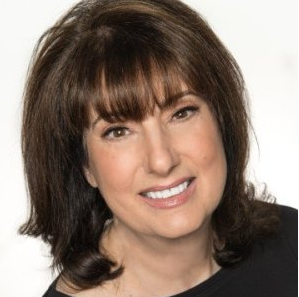 Bethany Kendall is President and CEO of Executive Service Corps New England which has a mission of enhancing the overall impact of the nonprofit community by enabling organizations to operate more effectively to meet the needs of their constituencies. They provide high quality, affordable consulting services utilizing a pool of experienced, dedicated, volunteer labor, namely senior level executives and professionals. Bethany will share ways the Corps can help your organziation.
Bethany Kendall is President and CEO of Executive Service Corps New England which has a mission of enhancing the overall impact of the nonprofit community by enabling organizations to operate more effectively to meet the needs of their constituencies. They provide high quality, affordable consulting services utilizing a pool of experienced, dedicated, volunteer labor, namely senior level executives and professionals. Bethany will share ways the Corps can help your organziation.
Session 2: Science and Data Collection (9:45 a.m. to 10:30 a.m.)
Monitoring generates the data needed to make informed, science-based decisions about the health of our watersheds and the ways to protect or improve them. Monitoring encompasses a wide array of tools and techniques, each suited to address specific needs. In this session we will cover a range of monitoring approaches including: 1) Traditional volunteer and community based monitoring, 2) Recent successes with innovative approaches, 3) Cutting edge emerging technologies.
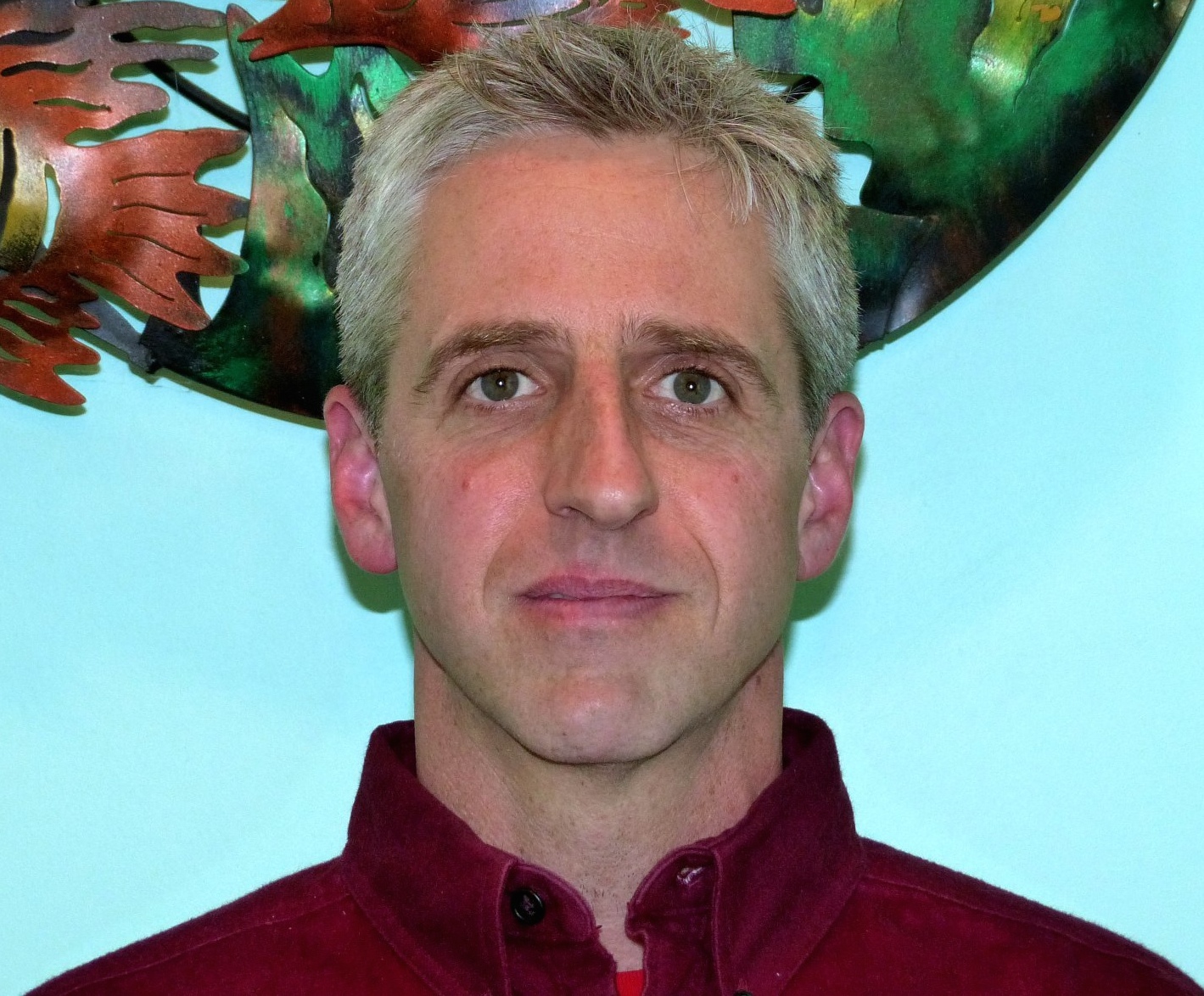
Moderator:
Alex Mansfield is the Ecology Program Director at the Jones River Watershed Association in Kingston, MA and is a Principal Research Scientist for Battelle Memorial Institute. For the past two decades Alex designed and conducted environmental field programs from the tropics to the arctic. Locally this has included dam removal, river restoration and monitoring of coastal ecosystem health.
Presenters:
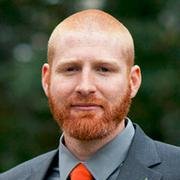 Mike Trainor is a Massachusetts native with a Bachelor of Science degree in Marine Biology from Roger Williams University. Working as a contracted employee with the Massachusetts Division of Marine Fisheries for the past five years, he has contributed to a variety of projects including commercial fisheries sampling, aquatic species surveys, and habitat assessments. A Jack-of-all-trades of sorts, his role in the development and execution of submersible video camera systems for migratory fish monitoring has allowed him to put his many abilities to use while satisfying his innate need for outdoor adventure.
Mike Trainor is a Massachusetts native with a Bachelor of Science degree in Marine Biology from Roger Williams University. Working as a contracted employee with the Massachusetts Division of Marine Fisheries for the past five years, he has contributed to a variety of projects including commercial fisheries sampling, aquatic species surveys, and habitat assessments. A Jack-of-all-trades of sorts, his role in the development and execution of submersible video camera systems for migratory fish monitoring has allowed him to put his many abilities to use while satisfying his innate need for outdoor adventure.
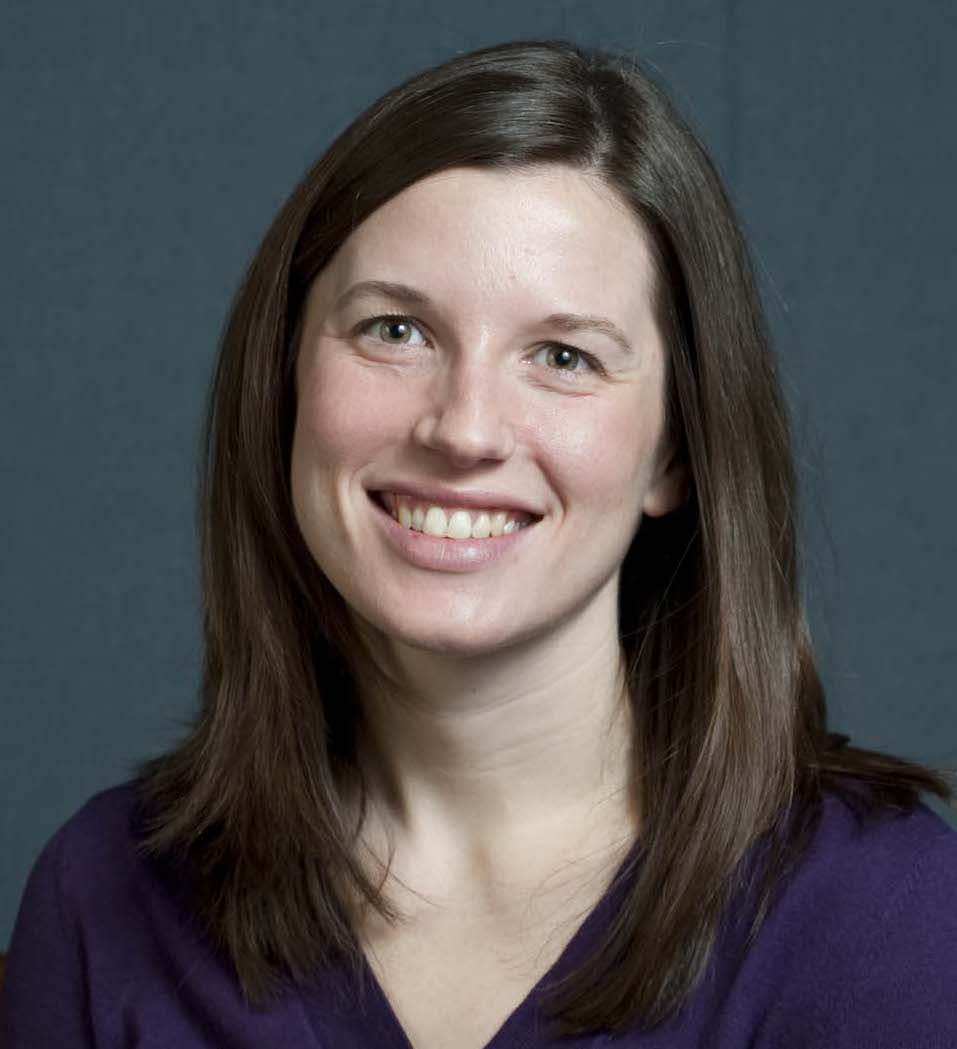 Karen Bieluch of Dartmouth College is working on a research project studying volunteer or citizen science monitoring programs in the river herring fishery. In collaboration with colleagues from the University of Southern Maine, she is working to improve the understanding of the development of river herring monitoring programs in Maine, Massachusetts, and New Hampshire. They are also studying the use of data gathered by citizen scientists in state and federal fishery management. Dr. Bieluch will present results from this project.
Karen Bieluch of Dartmouth College is working on a research project studying volunteer or citizen science monitoring programs in the river herring fishery. In collaboration with colleagues from the University of Southern Maine, she is working to improve the understanding of the development of river herring monitoring programs in Maine, Massachusetts, and New Hampshire. They are also studying the use of data gathered by citizen scientists in state and federal fishery management. Dr. Bieluch will present results from this project.

Session 3: Outreach (10:45 a.m. to 11:30 a.m.)
Watershed education and outreach efforts reach audience of early grade schoolers through retirees. This session brings together leaders in the use of in-school programs, print materials, outdoor experiences, restoration efforts, and virtual interaction. Learn how their efforts focus on young, old, or in-between, engaging and involving residents in appreciation and stewardship of land, water, wildlife, and natural cycles. Ask them a question or follow up with networking after the session.
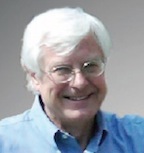 Moderator:
Moderator:
Lee Pulis is Vice President and Education Committee chair for the all-volunteer Herring Ponds Watershed Association in south Plymouth, which is located in a state-designated Area of Critical Environmental Concern. He is a former National Science Foundation Principal Investigator, curriculum developer, and college administrator. Currently, Mr. Pulis teaches environmental science online and travels as a teacher-educator and implementation specialist for the Boston Museum of Science’s high school Engineering the Future curriculum.
Panelists:
Lou-Anne Conroy grew up in Plymouth and recently returned to the area as a science educator at Plymouth South High School. Her assignment includes AP Biology, Environmental Science, Oceanography and General Biology. She brings a variety of aquatic and marine research experience at Woods Hole Marine Biological Lab, Woods Hole Oceanographic and Dartmouth College to her profession. An avid conservationist, she is a member of the Sandwich Conservation Commission and continues to volunteer her time in conservation organizations in MA, NH and VT.
Ms. Conroy is convinced that students learn best and care the most if they are directly involved in field studies related directly to their hometown. She integrates the ecology of local ponds, the Pine Barrens, and estuarine and coastal areas into her courses. She will share teaching methods using local wetlands as a classroom, including a study guide developed for use with a watershed stewardship guide written by a local volunteer-run nonprofit.
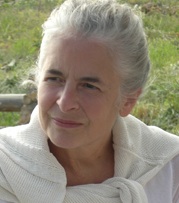
Glorianna Davenport is a trustee of Tidmarsh Farms, a founder of Living Observatory and a founding member of the MIT Media Laboratory where she currently serves as Visiting Research Scientist. Today, Ms. Davenport leads a 250-acre comprehensive freshwater wetlands restoration project for Tidmarsh Farms. In 2011 this effort became a priority project for Massachusetts Fish and Game's Division of Ecological Restoration. The project, the largest such restoration undertaken in the state, has attracted 22 partners and funders, and will be in construction in 2015.
In 2011, Davenport founded Living Observatory, an interdisciplinary collaborative center. Living Observatory combines landscape science with efforts to create tools and experiences that allow people, individually and collectively, to better understand the relationships between landscape-scale ecology, lifestyle choices and landscape resilience. Currently, seven university faculty, nine graduate students, four undergraduates and several high school students are active research partners.
Ms. Davenport will share insights about creating Living Observatory, a ecological learning collaboratory formed to document and interpret the landscape-scale, process-based freshwater wetland restoration effort currently underway on the family's 600-acre cranberry farm, located in Manomet, Massachusetts.
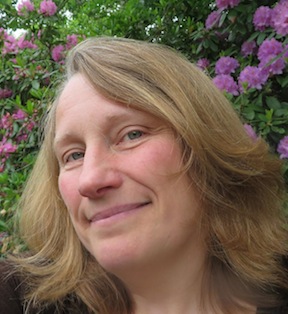 Kim VanWormer is the Program Manager of the Plimoth Plantation's Grist Mill and former Director of Education where she oversaw the museum’s education programming, production of curriculum and teacher training materials, online activities and curriculum, and professional development programs for teachers. Kim has a B.A. in American History and Museum Studies from the State University of New York at Oswego.
Kim VanWormer is the Program Manager of the Plimoth Plantation's Grist Mill and former Director of Education where she oversaw the museum’s education programming, production of curriculum and teacher training materials, online activities and curriculum, and professional development programs for teachers. Kim has a B.A. in American History and Museum Studies from the State University of New York at Oswego.
Kim will relate how to organize a local watershed awareness and education event, as she has done with Plimoth Plantation's Herring Run Festival. Be sure to ask questions and chat with her how to get something started in your area. And, visit the Plantation’s Grist Mill venue at Jenney Pond Park in Plymouth on Saturday and Sunday, April 25-26, to see the sponsors, vendors, artisans, kids' activities, and 5K racers.
Plenary Speaker: Eric Walberg - Watershed Management in a Warming World (12:00 p.m. to 12:45 p.m.)

Eric J. Walberg manages the Climate Services program at Manomet Center for Conservation Sciences. Recent projects include the Climate Smart Land Network (over 15 million acres of forest land in North America and increasing) and development of climate change adaptation plans for multiple sites in New England.
Prior to joining Manomet, Eric was the Administrator of the Physical and Environmental Planning Department of the Hampton Roads Planning District Commission in Chesapeake, Virginia. In that capacity he focused on climate change adaptation in southeastern Virginia and is responsible for the development of the first regional green infrastructure plan in the State.
He holds a Master of Planning degree in Urban and Environmental Planning from the University of Virginia, a Bachelor of Science degree in Computer Science from Old Dominion University and a Bachelor of Fine Arts degree from Virginia Commonwealth University. Eric is a member of the American Planning Association and the American Institute of Certified Planners.
Session 4: Stormwater (1:00 p.m. to 1:45 p.m.)
Change is coming to the world of stormwater with the new EPA municipal stormwater permit. Join our panel of leading stormwater practitioners for a lively discussion of what the permit may hold in store, how communities across the country are using new approaches to fund stormwater obligations, and how local leaders are using innovative regional partnerships among municipalities, nonprofits and regional planning agencies to make their stormwater programs more affordable and effective.
Moderator:
Ian Cooke has served as Executive Director of the Neponset River Watershed Association for two decades, where he has focused on using data, advocacy, and novel municipal partnerships to address challenges such as stream flow protection, habitat restoration and stormwater pollution.
Panelists:
 Debbie Cook has served as Communications Director for the North and South Rivers Watershed Association and manager of the Greenscapes program since 2008. Greenscapes was created ten years ago to educate South Shore homeowners about water conservation and protecting water quality on their properties, and has now expanded to more than fifty cites and towns in Massachusetts. Debbie has also served as chair of the Cohasset Conservation Commission and as a member of many other environmental boards and committees.
Debbie Cook has served as Communications Director for the North and South Rivers Watershed Association and manager of the Greenscapes program since 2008. Greenscapes was created ten years ago to educate South Shore homeowners about water conservation and protecting water quality on their properties, and has now expanded to more than fifty cites and towns in Massachusetts. Debbie has also served as chair of the Cohasset Conservation Commission and as a member of many other environmental boards and committees.
Martin Pillsbury is a regional planner and serves as the Environmental Director at the Metropolitan Area Planning Council (MAPC). He manages all aspects of the agency's environmental and water resources programs. This has included a wide array of projects including most recently the regional Neponset Stormwater Partnership. He has also overseen creation of MAPC’s Low Impact Development Toolkit, the Massachusetts Guide to Water Reuse, and SummerSmart, a guide to managing peak seasonal water demand, as well as stormwater bylaw and regulation update projects for more than ten communities.
Newton Tedder has been with EPA Region 1 for four years and currently serves as the primary permit writer for the Massachusetts and New Hampshire MS4 general permits, among other projects. Mr. Tedder was trained as a hydrogeologist at Boston College and previously worked as a private sector consultant engaged in a variety of hydrogeological investigations and water supply permitting activities.
Session 5: Drinking Water in Southeastern Massachusetts (2:00 p.m. to 2:45 p.m.)
Many communities are experiencing degraded waterways and extinct fish runs and bumping into water withdrawal limits as they struggle to meet demand for clean, safe drinking water. How are we going to supply drinking water for our region in the future? Will we be able to restore streamflows and have lawns? This panel will explore how to meet demand for drinking water, while protecting freshwater resources through better regulation, low-impact development, and collaboration between municipal government and environmental advocates.
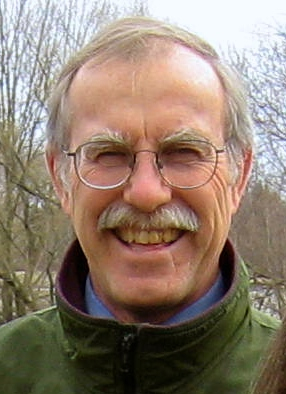 Moderator:
Moderator:
Paul Lauenstein is a member of the town of Sharon’s Water Management Advisory Committee and was the water conservation coordinator for the town of Georgetown. Mr. Lauenstein brings the unique perspective of water conservation and involvement in town water management policy making. Mr. Lauenstein is also on the Water Supply Citizen’s Advisory Committee of the Massachusetts Water Resources Authority.
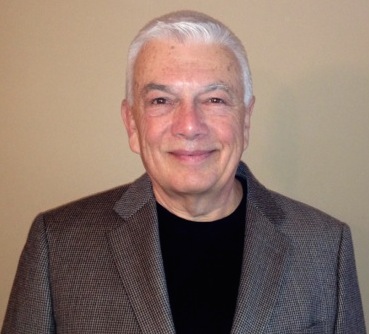 Panelists:
Panelists:
Al Bangert is a former Department of Public Works director for the Town of Scituate, and is now the Department’s Special Projects Director. Mr. Bangert is involved in the restoration of flows in the First Herring Brook – the Town of Scituate’s water supply. Mr. Bangert can provide the perspective of the Town’s interest in restoring flows and maintaining water supply.
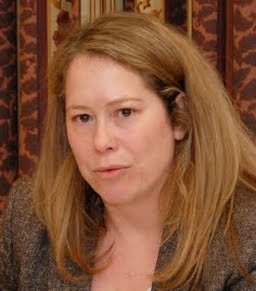
Bethany Card is Assistant Commissioner of the Bureau of Water Resources at the Massachusetts Department of Environmental Protection. Ms. Card will speak to the new Sustainable Water Management Initiative (SWMI) regulations that are meant to provide protection to streams from new withdrawals and minimize impacts to our streams from our current water withdrawals.
Margaret Kearns is an Aquatic Scientist with Corona Environmental Consulting in Scituate, MA. Her experience includes integrated watershed management modeling to support river restoration goals while ensuring adequate drinking water supplies and recreational opportunities. She developed hydrologic models and reservoir management plans to help the Town of Scituate restore riverine habitats and a herring run in First Herring Brook, created a watershed model of the Tri-Basin system (headwaters of the Jones River, Herring River and Stump Brook in southeast MA) to support lake habitat and fish passage planning as well as community drinking water needs and several recreational reservoir management plans that balanced lake drawdowns with river habitat quality. Ms. Kearns' current work also includes dam removal feasibility planning, source water vulnerability assessments and developing modeling tools for drinking water source protection.
Bill Napolitano is the Environmental Program Director of the Southeast Regional Planning and Economic Development District and has been involved in water issues in Southeastern Massachusetts for 28 years. Mr. Napolitano can provide insight on the history of water withdrawals in the region and cooperative and innovative management actions taken in the face of dwindling water resources, such as the work of the Canoe River Aquifer Advisory Committee, which was adopted by state legislature, and the Swansea desalination plant.
Session 6: Wastewater (3:00 p.m. to 3:45 p.m.)
The challenges of wastewater management include not only maintaining and upgrading wastewater treatment plants and septic systems, but also maintaining underground pipes and pump stations and preventing combined sewer overflows. How are cities and towns dealing with issues such as inflow and inflitration, combined sewers, and system expansion? Why are nutrient reductions important for water quality, and how will we achieve the needed reductions? What are some of the innovative alternatives that can be used in our communities?
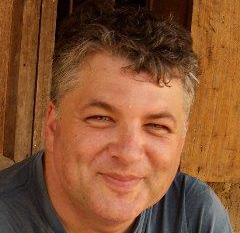 Moderator:
Moderator:
Topher Hamblett is Director of Advocacy and Policy for Save The Bay in Providence, RI. He has worked as an advocate for over 20 years on a number of issues, including policy development on wastewater, habitat restoration, dredge material management, and stormwater financing. Mr. Hamblett represents Save The Bay in stakeholder processes and task forces, in the media and in the halls of state government.
Panelists:
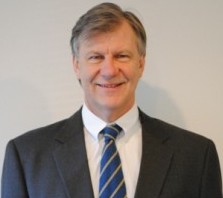
Scott Horsley is a Principal at Horsley Witten Group in Sandwich, MA where he has worked on a range of technical, planning, and policy issues associated with land use and environmental science. Mr. Horsley has 30 years of professional experience in the fields of watershed planning and water resources management. He will discuss innovative treatment designs that help to successfully manage nitrogen in wastewater.
David Webster is an environmental engineer with over 30 years of experience with nutrient permitting and water quality issues at the US Environmental Protection Agency. Mr. Webster will discuss the ongoing permitting process for wastewater treatment plants in the Taunton River watershed.
Session 7: Recreational Waters (4:00 p.m. to 4:45 p.m.)
Panelists will delve into the relationship of water quality and recreational uses. We will learn from a health agent how communities are addressing the issue of algal blooms caused by excess nutrient inputs, which can limit swimming, fishing and boating. She will also discuss the consequences of ignoring the issue. The Plymouth Harbormaster will speak about local aquaculture sites and how decades of water quality improvement projects have allowed for a portion of Plymouth Harbor to open for shellfishing. A local fisherman and restoration advocate will address the effects of water quality and restoration projects on local fisheries.
Moderator:
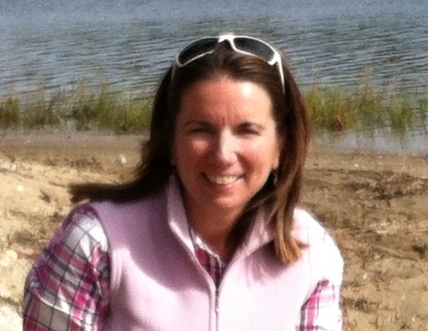
Panelists:
Michael Celona is Chief of the Water Toxics Unit of the Massachusetts Department of Public Health, Bureau of Environmental Health. He has been with the Department for 15 years. Mr. Celona coordinates ETP water-related activities involving bathing beaches, freshwater algae blooms, drinking water, and freshwater fish advisories. He represents the Department on the Massachusetts Board of Registration of Operators of Drinking Water Supply Facilities, the Charles River Water Quality Commission, and the Safe Drinking Water Act Assessment Advisory Committee. Mr. Celona has a B.A. in Environmental Science from Wheaton College and an M.A. in Urban and Environmental Policy from Tufts University, and has held a Massachusetts Sanitarian license since 2006. He will discuss cyanobacteria blooms in southeastern MA.
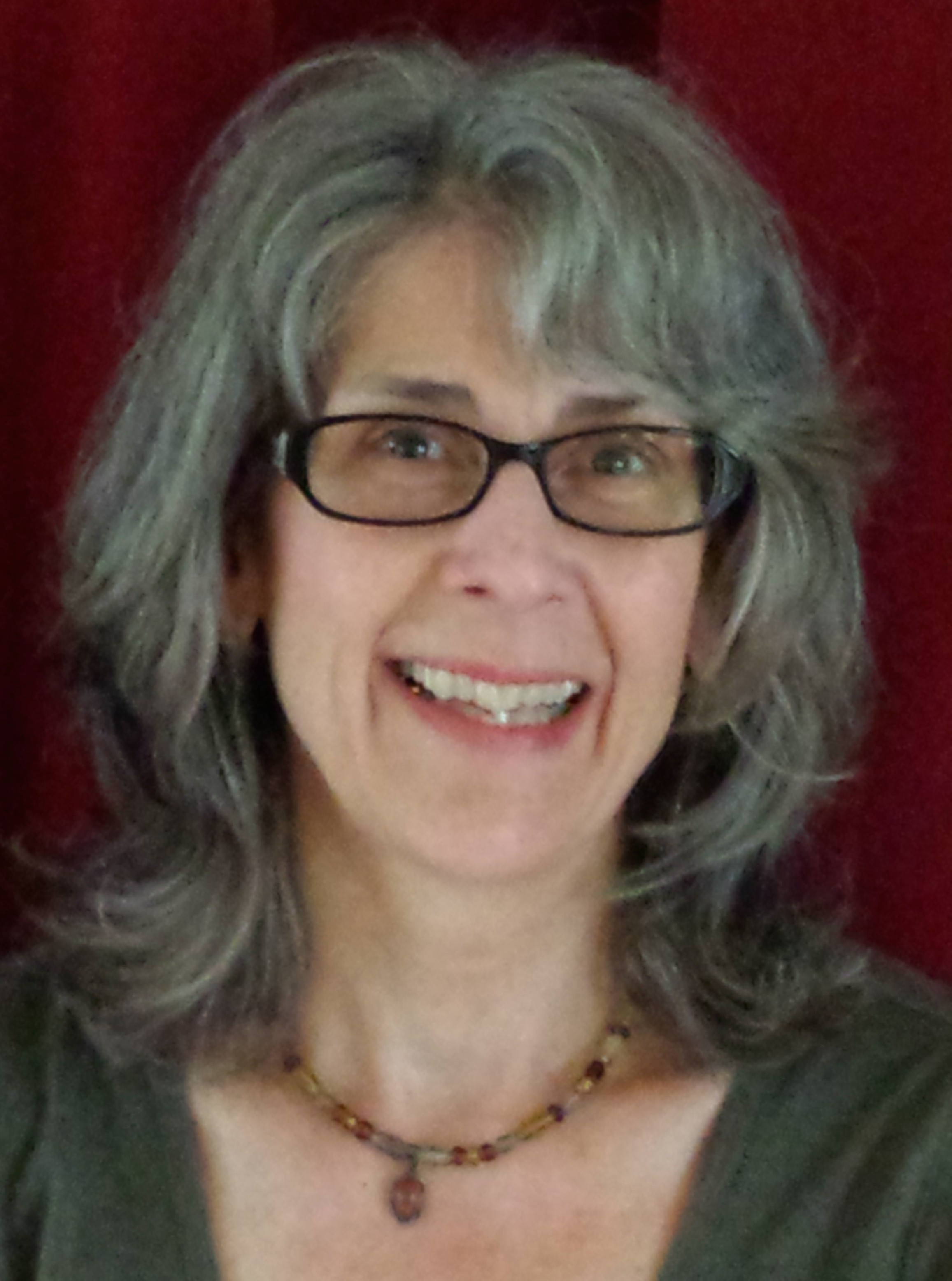
Cathleen Drinan, R.S., R.E.H.S., has been the health agent for the Halifax Board of Health since the year 2000. With an undergraduate degree in Psychology and an M. Ed. in Health Promotion, she was headed for teaching when the health agent position became available. She became a teacher, after all, with a wide variety of public health topics requiring continual education for her and the public, cyanobacteria and water management practices representing a couple of the many. Ms. Drinan will discuss cyanobacteria from the viewpoint of the health agent, including the challenges of informing the public, finding solutions and forming a watershed association.
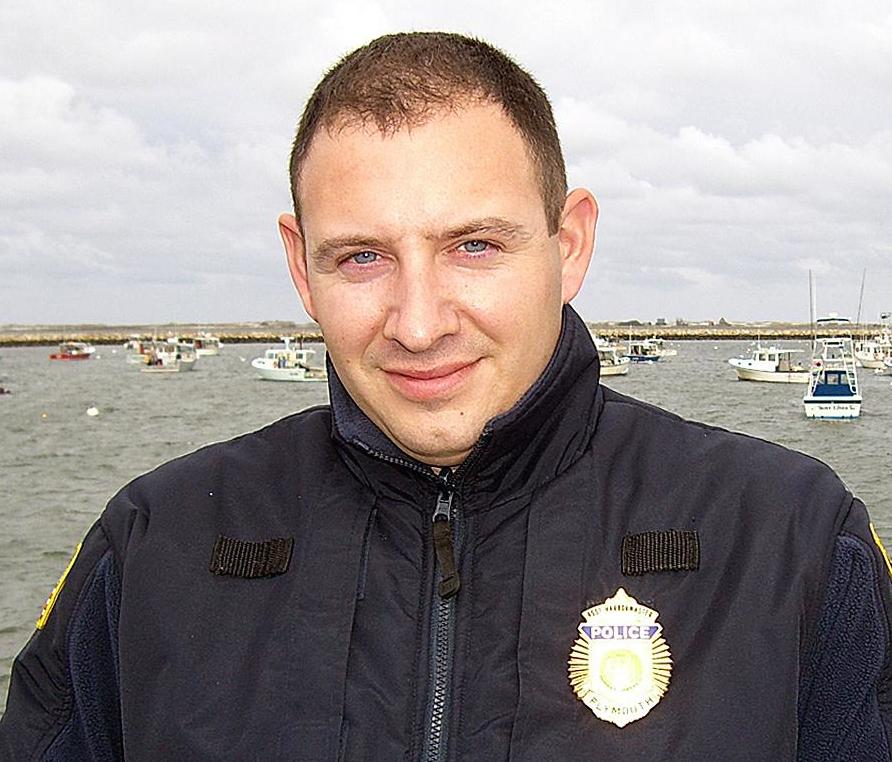 Chad Hunter is the Harbormaster and Shellfish Warden for the Town of Plymouth. Mr. Hunter developed an aquaculture program in 2009, creating the local regulatory framework and ensuring fair and equitable assignment to the limited available area. The Town currently has seven growers and is in the permitting process for an Aquaculture Development Zone to streamline the assignment and permitting process for interested individuals. Mr. Hunter, along with the Division of Marine Fisheries, recently were able to reopen tidal flats that had been closed for over 30 years because of historically poor water quality in Plymouth Harbor that is now improved. Mr. Hunter will speak about aquaculture sites in Plymouth Bay and how water quality improvements allowed for shellfish beds in Plymouth Harbor to be safely reopened after decades of closure.
Chad Hunter is the Harbormaster and Shellfish Warden for the Town of Plymouth. Mr. Hunter developed an aquaculture program in 2009, creating the local regulatory framework and ensuring fair and equitable assignment to the limited available area. The Town currently has seven growers and is in the permitting process for an Aquaculture Development Zone to streamline the assignment and permitting process for interested individuals. Mr. Hunter, along with the Division of Marine Fisheries, recently were able to reopen tidal flats that had been closed for over 30 years because of historically poor water quality in Plymouth Harbor that is now improved. Mr. Hunter will speak about aquaculture sites in Plymouth Bay and how water quality improvements allowed for shellfish beds in Plymouth Harbor to be safely reopened after decades of closure.
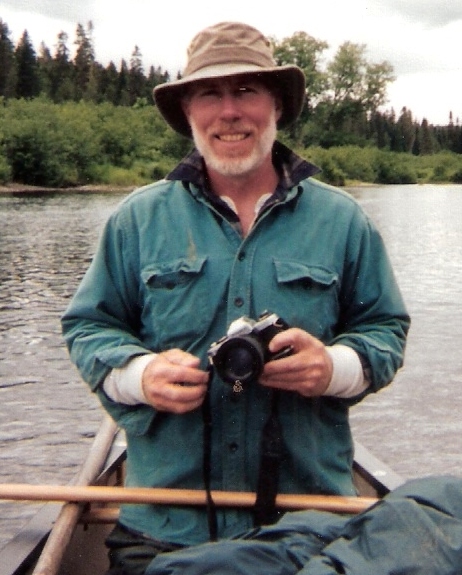 Warren Winders, a member of Trout Unlimited and the Sea Run Brook Trout Coalition, has been fishing the waters of Southeastern Massachusetts for more than 60 years. In 1993 Mr. Winders became the Massachusetts/ Rhode Island Council of Trout Unlimited’s Red Brook Project Director. As such, he was charged with coordinating the Council’s effort to protect and restore Red Brook, a salter (sea-run) brook trout stream that flows through Plymouth and Wareham into Buttermilk Bay, which is located at the northern terminus of Buzzards Bay. Warren is a past President of the Southeastern Massachusetts Chapter of Trout Unlimited, and currently serves on its Board of Directors. He is also a delegate to the MA/RI Council of Trout Unlimited continuing to work on the restoration of Red Brook.
Warren Winders, a member of Trout Unlimited and the Sea Run Brook Trout Coalition, has been fishing the waters of Southeastern Massachusetts for more than 60 years. In 1993 Mr. Winders became the Massachusetts/ Rhode Island Council of Trout Unlimited’s Red Brook Project Director. As such, he was charged with coordinating the Council’s effort to protect and restore Red Brook, a salter (sea-run) brook trout stream that flows through Plymouth and Wareham into Buttermilk Bay, which is located at the northern terminus of Buzzards Bay. Warren is a past President of the Southeastern Massachusetts Chapter of Trout Unlimited, and currently serves on its Board of Directors. He is also a delegate to the MA/RI Council of Trout Unlimited continuing to work on the restoration of Red Brook.
Mr. Winders credits his passion for fly fishing and his years working on Red Brook for turning him into an advocate for stream restoration and wild brook trout. To further that advocacy, Warren recently helped to found the Sea Run Brook Trout Coalition, a nonprofit that is focused on protecting, restoring and educating people about salter brook trout and coastal cold water streams. Although a carpenter by trade, over the years Warren has contributed numerous articles on fishing and conservation to a range of publications that includes On the Water, TROUT, the River Management Society and The Salter. You can follow Warren’s conservation blog at rageagainstthedams.wordpress.com
Schedule subject to change
REGISTRATION IS NOW CLOSED.


